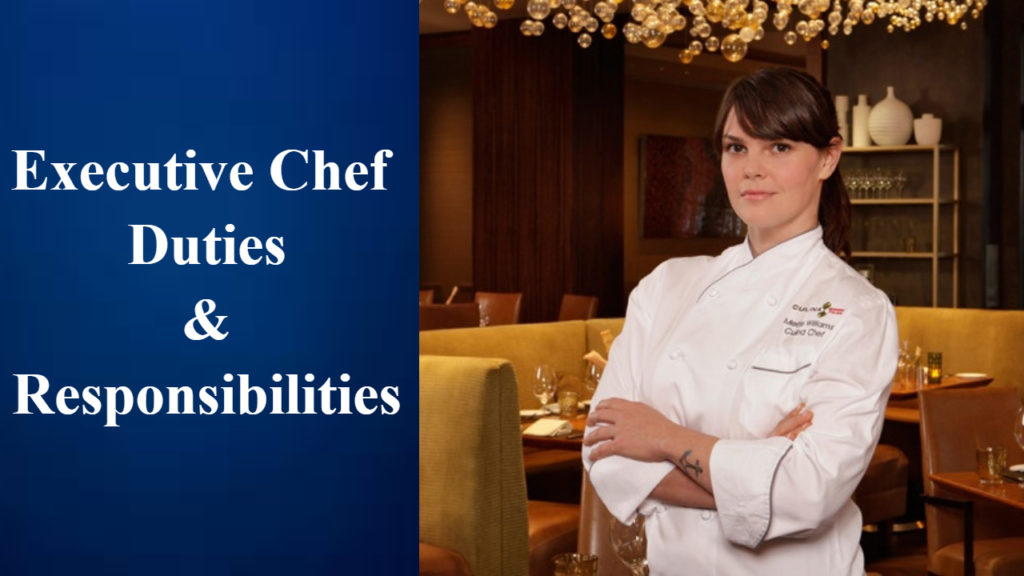
Executive Chef Job Description
The Executive Chef is the HOD (Head of the Department) for the Food Production Department. The topmost role of the Executive Chef is to manage all the sub-departments of his department which are the main kitchen, banquet kitchens, Gardemanage, Butchery, Bakery, etc. Executive chefs are responsible for all daily food preparation, hiring cooking staff, and planning menus. This is a supervisory position, so good leadership skills are required in addition to strong cooking skills. The Executive Chef duties and responsibilities are discussed below
Executive Chef Duties and Responsibilities
Executive chefs are responsible for all the food coming out of a kitchen, so need a strong knowledge of food. Kitchens seek professionals who demonstrate the following abilities:
Menu Planning
Executive chefs make menus and come up with unused formulas as required to replace old, obsolete dishes with new and exciting choices.
Adhere to Food Safety Regulations
Executive Chefs must take after food safety directions, since disgracefully put away or arranged food isn’t just a health violation, it can be possibly lethal to individuals eating it. The chef must too remain up-to-date on modern health code regulations and start following them the minute they are issued.
Hire and Train Cooking Staff
Executive chefs interview, recruits, and train all cooking and kitchen staff, as well as fire staff who are not performing their duties effectively.
Monitor Food Inventory and Order Items
Executive chefs approve all food inventory and kitchen items as needed, monitoring the daily food supply to ensure that all ingredients are available as needed for recipes.
Quality Control
Executive chefs are responsible for the quality of all food leaving the kitchen and all inventory entering the kitchen.
Ensure Cleanliness & Hygiene of Department
Executive chefs see that all cooking, food preparation, and storage areas are clean and hygienic at all times.
Maintain Food Costs
Executive Chefs are masters in maintaining the food cost of the kitchen, Executive chef monitors the wastage.
Manage Kitchen Staff
Executive chefs write staff schedules and host staff meetings to brief employees on kitchen practices and changes.
Stay-up-to-Date on Culinary Trends
It’s necessary for executive chefs to be aware of food trends and what’s popular in the culinary world, tailoring menus to suit.